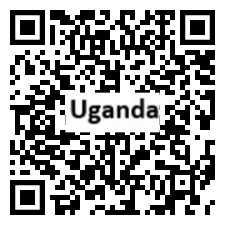Travel Facts
US State Dept Travel Advisory
The US Department of State currently recommends US citizens Reconsider Travel to Uganda due to crime and terrorism. Exercise increased caution due to Ebolavirus disease (EVD). Some areas have increased risk. Consult its website via the link below for updates to travel advisories and statements on safety, security, local laws, and special circumstances in this country.
https://travel.state.gov/content/travel/en/traveladvisories/traveladvisories.html
Passport/Visa Requirements
US citizens should make sure their passport will not expire for at least 6 months after they enter the country even if they do not intend to stay that long. They should also make sure they have at least 1 blank page in their passport for each entry stamp/visa that will be required. A visa is required. US citizens will need to get in touch with the country’s embassy or nearest consulate to obtain a visa prior to visiting the country.
US Embassy/Consulate
+(256)256-414-259791; U S Embassy Kampala, 1577 Ggaba Road, Kampala, Uganda; KampalaUScitizen@state.gov; https://ug.usembassy.gov/
Telephone Code
256
Local Emergency Phone
112 (cell phone), 999 (fixed)
Vaccinations
An International Certificate of Vaccination for yellow fever is required for travelers arriving from countries with a risk of yellow fever transmission and for travelers having transited through the airport of a country with risk of yellow fever transmission. See WHO recommendations. On 21 March 2022, the US Centers for Disease Control and Prevention (CDC) issued a Travel Alert for polio in Africa; Uganda is currently considered a high risk to travelers for polio; the CDC recommends that before any international travel, anyone unvaccinated, incompletely vaccinated, or with an unknown polio vaccination status should complete the routine polio vaccine series; before travel to any high-risk destination, CDC recommends that adults who previously completed the full, routine polio vaccine series receive a single, lifetime booster dose of polio vaccine.
http://www.who.int/
Climate
Tropical; generally rainy with two dry seasons (December to February, June to August); semiarid in northeast
Currency (Code)
Ugandan shillings (UGX)
Electricity/Voltage/Plug Type(s)
240 V / 50 Hz / plug types(s): G
Major Languages
English, Ganda or Luganda, other Niger-Congo languages, Nilo-Saharan languages, Swahili, Arabic
Major Religions
Protestant 45.1%, Roman Catholic 39.3%, Muslim 13.7%
Time Difference
UTC+3 (8 hours ahead of Washington, DC, during Standard Time)
Potable Water
Opt for bottled water
International Driving Permit
Suggested
Road Driving Side
Left
Tourist Destinations
Bwindi Impenetrable National Park; Kibale Forest National Park; Queen Elizabeth National Park; Ziwa Rhino Sanctuary; Murchison Falls National Park; Tombs of Bugana Kings; Uganda Wildlife Conservation Center
Major Sports
Soccer, rugby, basketball, athletics (track and field), boxing
Cultural Practices
Walking over pots, especially those containing food, is considered very rude.
Tipping Guidelines
It is not customary to tip for service in hotels and bars. It is common to tip your driver and guide on a safari or hike, as well as the porter and cook that accompanies the group. Conventionally, $10-20 (USD) per person per day would be a fair benchmark.
Souvenirs
Musical instruments, wood carvings, woven goods and batik fabric, locally made jewelry, local teas and coffees
Traditional Cuisine
Matoke (or Matooke) — unripe boiled, steamed, or roasted bananas typically mashed and paired with vegetable sauces, ground peanuts, or meat
Please visit the following links to find further information about your desired destination.
World Health Organization (WHO) - To learn what vaccines and health precautions to take while visiting your destination.
US State Dept Travel Information - Overall information about foreign travel for US citizens.
To obtain an international driving permit (IDP). Only two organizations in the US issue IDPs:
American Automobile Association (AAA) and American Automobile Touring Alliance (AATA)
How to get help in an emergency?
Contact the nearest US embassy or consulate, or call one of these numbers:
from the US or Canada - 1-888-407-4747 or from Overseas - +1 202-501-4444
Page last updated: Wednesday, October 19, 2022
